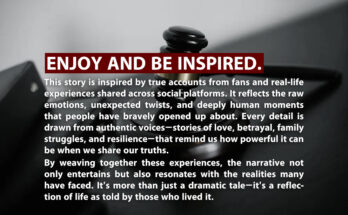I was working retail when a woman came in needing help with her phone. She had pancreatic cancer, and I could see how much she was struggling. I did everything I could—transferred her contacts, set up her device, made sure she left with peace of mind. She was so grateful, she handed me a $100 gift card to the store. I knew it wasn’t allowed. I could’ve been fired. But I took it. Later, guilt crept in, so I went to the one manager I trusted. He asked where the card was. I said, “In my pocket.” He nodded and said, “Don’t tell anyone. She gave it to you. She refused to take it back.” I used it to buy my boyfriend’s Christmas gift.
She was one of those customers who leaves a mark. Her voice was soft, her gratitude louder than words. I didn’t help her for a reward—I helped her because she needed someone to care. But when she handed me that card, I froze. It felt wrong to accept, but even worse to reject.
I held onto it for hours, unsure what to do. I kept replaying her smile, her “thank you,” the way she insisted. It wasn’t about the money—it was her way of saying, “You made my day better.”
When I told my manager, I expected reprimand. Instead, I got understanding. He didn’t condone it, but he didn’t condemn me either. He saw the humanity in the moment, not just the policy.
I used the card to buy my boyfriend’s Christmas gift. It felt strange—like passing kindness forward. I still think about her, and how a small gesture carried so much weight.
Sometimes, the rules don’t fit the moment. And sometimes, compassion looks like quietly accepting a gift from someone who just wanted to say thank you.


